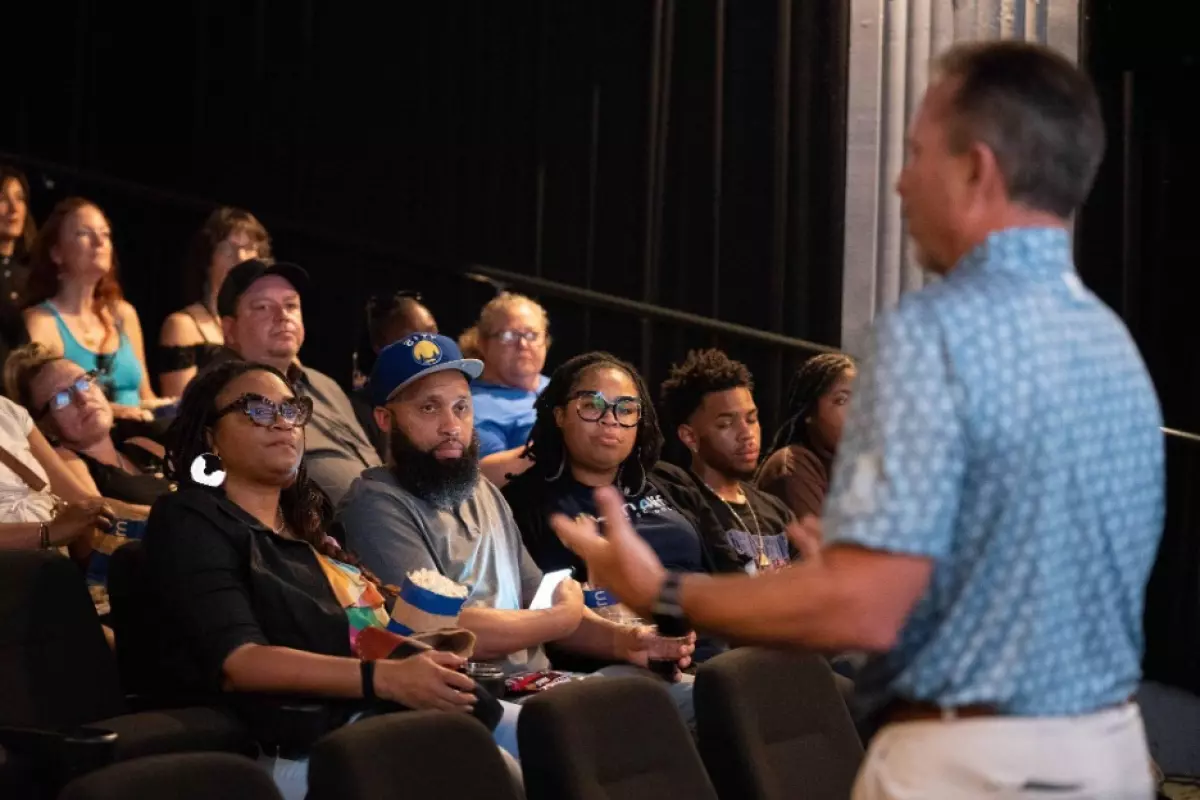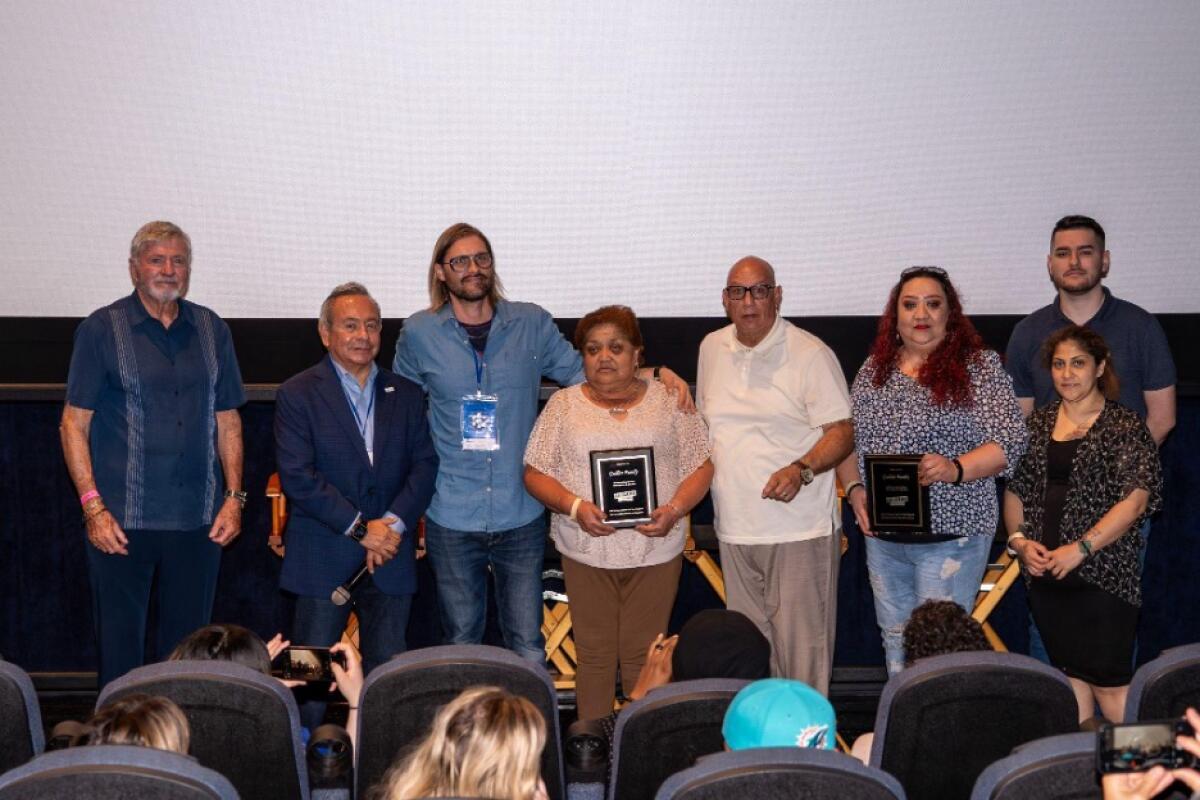
The acclaimed film shares the perspective of marginalized students fighting to get schooled in America. As 2024 brings education reforms in California, the film sheds light on the importance of preserving DASS program community schools.
How should society treat the students who have fallen through the cracks? While there have been many documentaries focused on education, few hit on this question quite like La Lucha: Getting Schooled In America, which continues to spark meaningful conversations at film festivals across the country.
Translating to “The Fight” or “The Struggle,” La Lucha follows four kids through their high school years in Pacoima, California—without the documentarist ever knowing where their stories might end up. The resulting story represents a microcosm of kids who most commonly drop out of school—and presents a model for how they can overcome the odds. La Lucha puts its finger on the pulse—exploring teen pregnancy, gang culture, issues around bullying, mobility, COVID-19 learning loss, and more. These are all common reasons why students are not graduating high school across the country, not just in Pacoima.
At the heart of the film is the story of Juan Carlos Guillen, one of the two people killed during the 2020 Dodgers’ World Series Celebration in Sylmar. This tragedy rocked Guillen’s family, friends, and community—as it will viewers of La Lucha who meet him through the film. At the time, Guillen had just been accepted to college—a dream that he had defied incredible odds to achieve.
Guillen, one of many held back from circumstance, had to overcome low expectations and limited means to get a shot at higher education. Attending Learn4Life, a community school using flexible schedules and personalized learning to act as a human recovery program, Guillen avoided slipping through the cracks. The film captures the personal battles that the student worked to overcome—and the devastation that came just as Guillen had achieved his highest aim.
Still, Juan Carlos Guillen’s legacy will not fade away. All for Juan, a nonprofit organization that will award university and college scholarships to students in battered neighborhoods such as Pacoima, is being developed in his name.

Along with Guillen, the film features three other students fighting for a better life through education. Peers of the late student, each grapple with their own battles in addition to the sudden death of their classmate and friend. The power of La Lucha lies in these moving personal stories, which are representative of wider trends happening to students across the country.
One of the featured students, finding herself pregnant, receives support through Learn4Life’s Helping Our Parenting Teens Excel (HOPE) program. Another, falling behind on his studies following the passing of Guillen, is connected to a mentor who motivates him to turn trauma into triumph and graduate on time. A third, having moved around a lot in childhood, facing bullies in every school she had found herself in, finds Learn4Life’s small classes and personalized teaching as an opportunity to let walls down and discover her confidence.
Rand Courtney directed the film, which features special contributions from experts and community leaders such as Actor Danny Trejo and Congressman Tony Cárdenas. La Lucha has garnered attention at a variety of film festivals, even being viewed in London, England at Film Fest International.

Going into filming, the goal wasn’t just to amplify the voices of marginalized students, but also to share a blueprint for how communities can support their success. It explores community schools as robust partners for public school boards — all working together to lower dropout rates and set students up for lifetime success.
The average age of Learn4Life’s students is 17 years old. For 20 years, the program has been a compliment to LAUSD schools that have seniors who otherwise have no way to graduate. Programs like Learn4Life freely accept these students and can provide their free services until they are 24 years old — to get them across the finish line with a high school diploma. As a community school that is partnered with federally-funded Workforce Investment Programs, Learn4Life also can provide WIOA training and, hopefully, a great resulting career in the trades.
Such a compliment in the world of education is surely needed.
The latest Five-Year Cohort Graduation Rates, provided by California’s Department of Education, highlight the need for movement in this area. The state’s high school dropout rate sits at over 11%, which is two times more than the national average from 2021.
The consequences of dropping out of high school have long been researched, with one study finding that “high school dropouts were up to four times more likely to experience individual negative outcomes (being arrested, fired, or on government assistance, using illicit substances, having poor health) by age 27. Beyond the individual impact, the National Center for Education Statistics reports that “the average high school dropout costs the economy approximately $272,000 over his or her lifetime.”
La Lucha explores the lived experience of students working to not just be another statistic—and the teachers, mentors, and advocates that have supported them along the way. Learn4Life, a community school supported by Lifelong Learning, is a program needed now more than ever.
Unfortunately, as political battles between charter and traditional education continue to happen across the country, community schools get caught in the crossfire. In Los Angeles, changing LAUSD policy now restricts charter school locations, with more reforms likely coming in 2024. As we move from discussion to policy, it is critical to differentiate charter from community schools such as Learn4Life, which have Dashboard Alternative School Status (DASS) and are predominantly serving at-risk students.
If we fail to do so, the triumphs over adversity seen in La Lucha will be flashes in a pan, rather than representing meaningful change for the students most likely to slip through the cracks.
